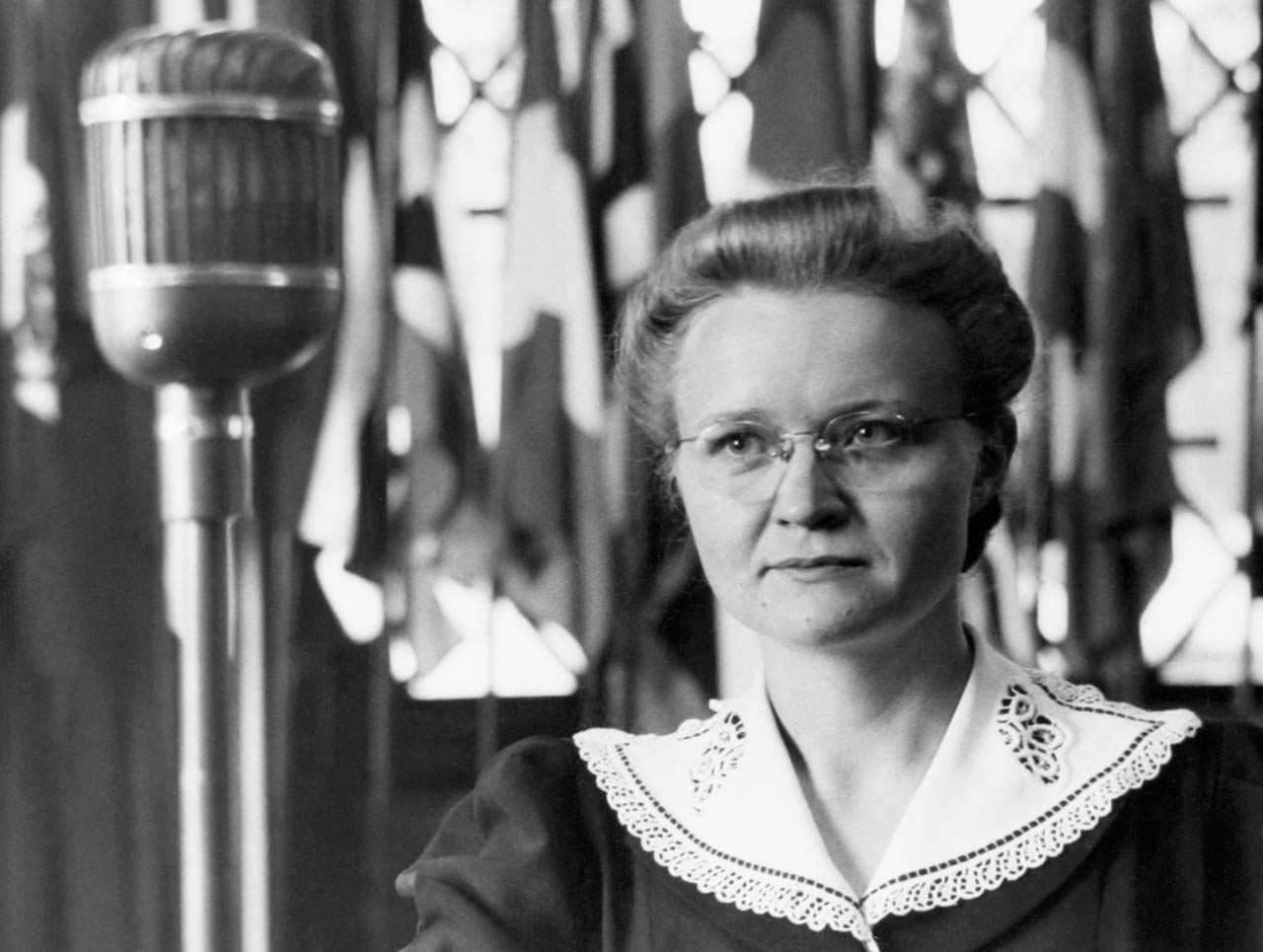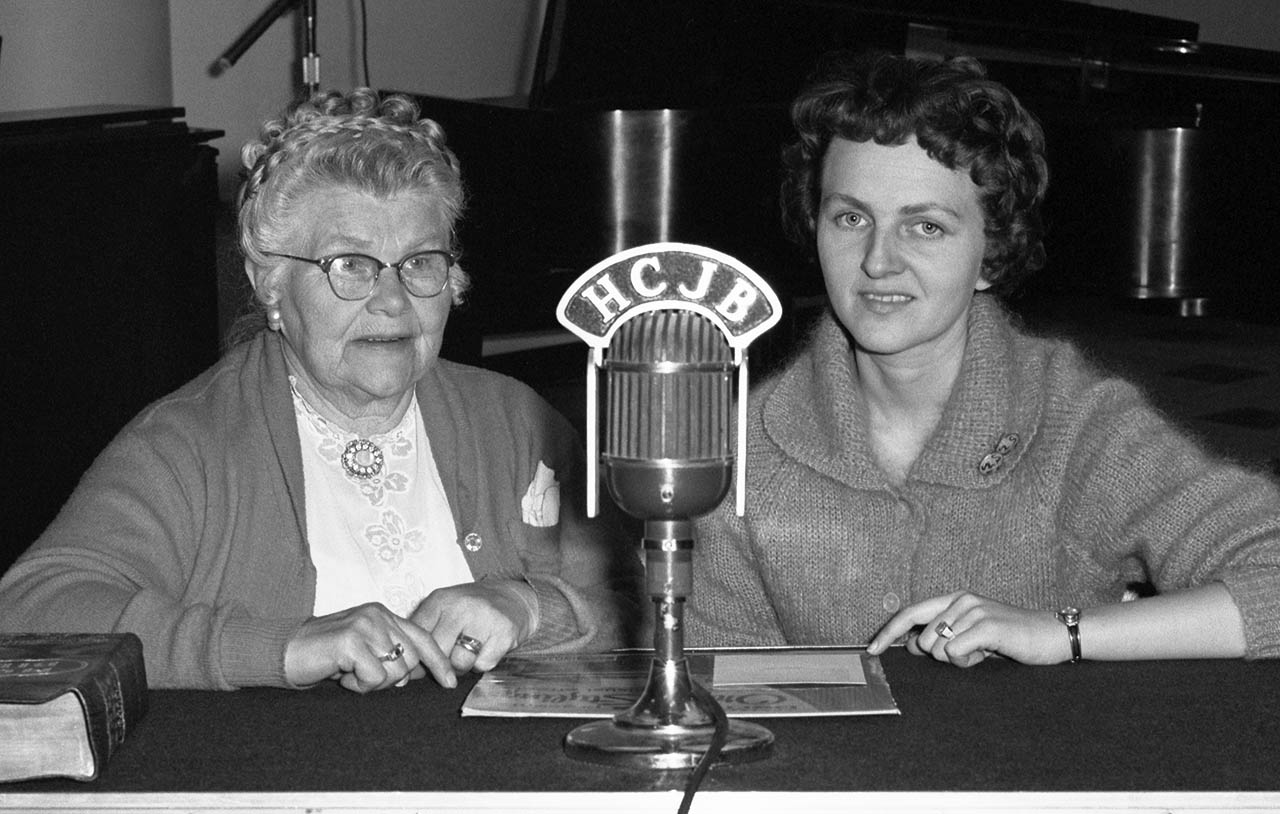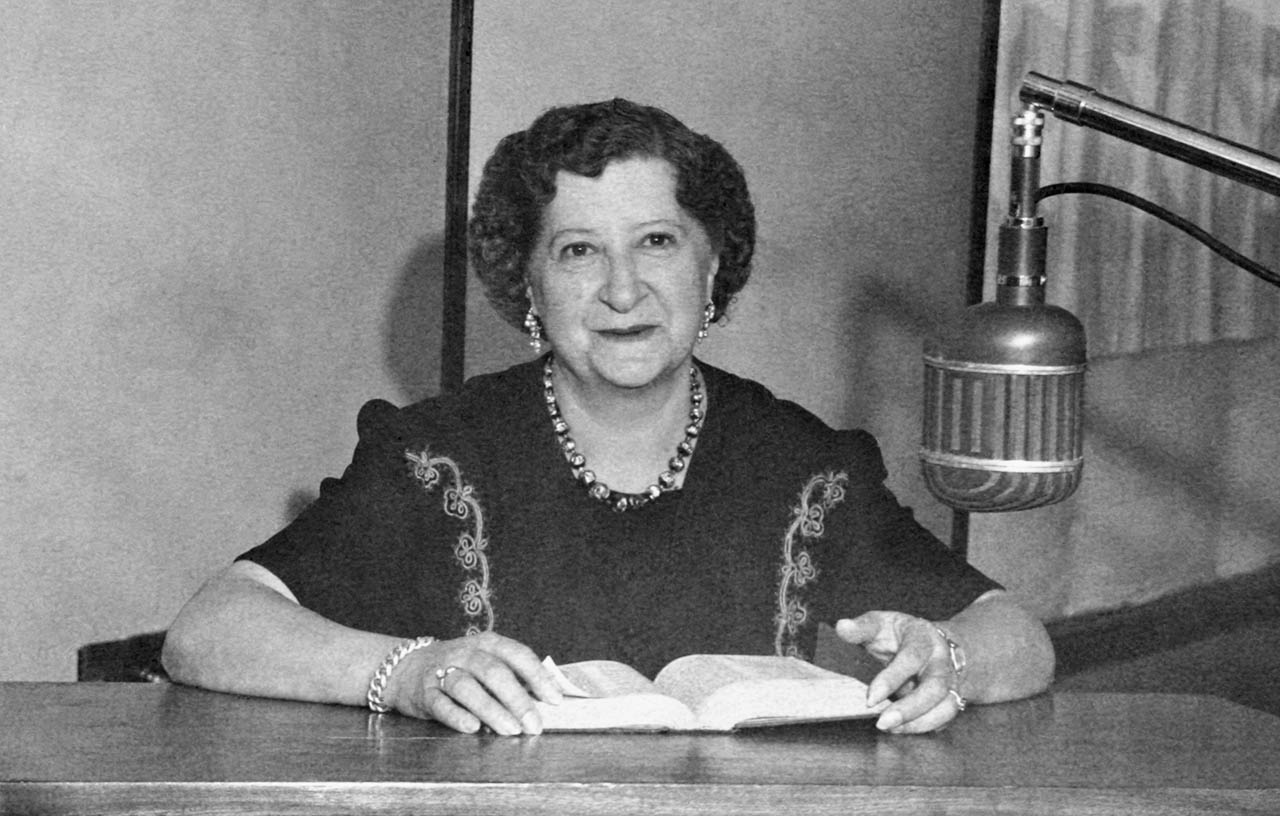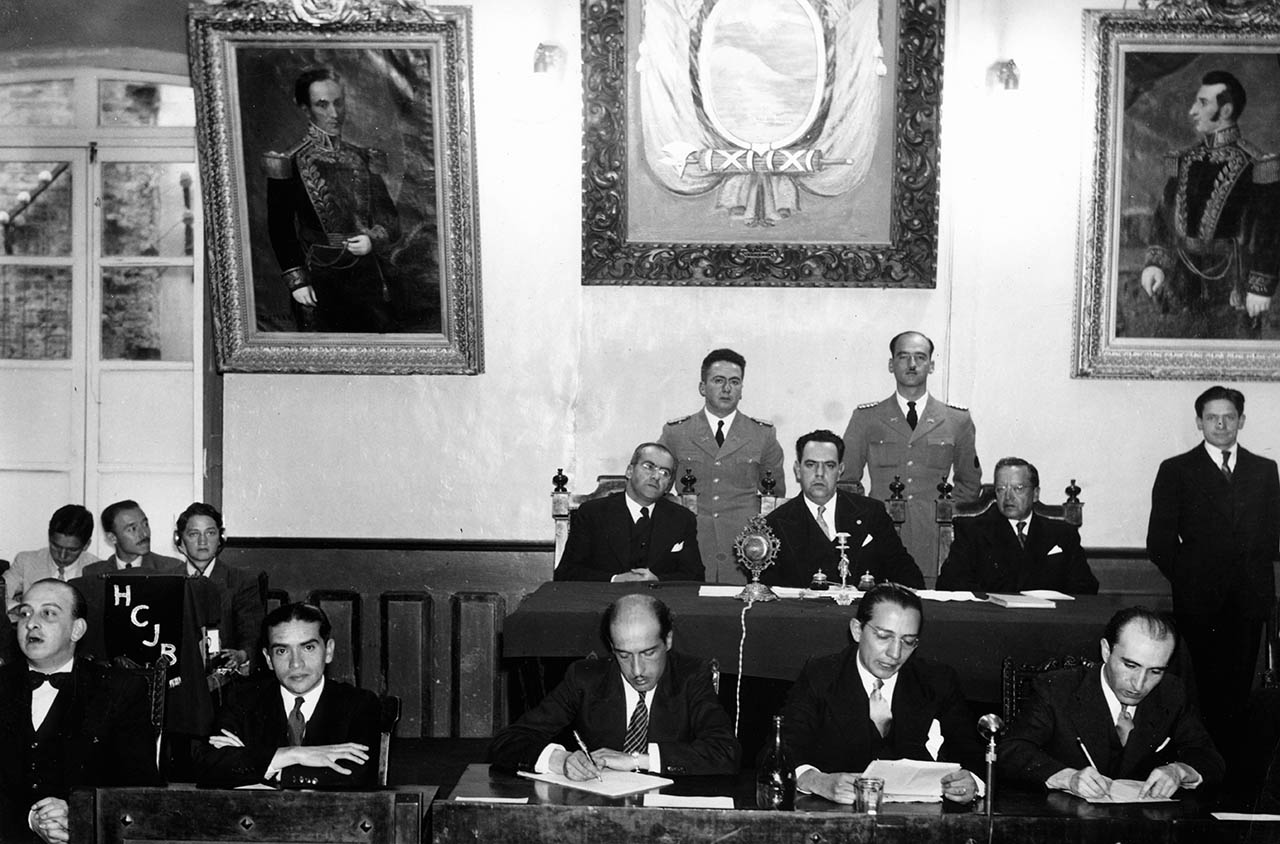Invading the USSR
 |
Peter Deyneka visited HCJB in Quito in early 1941 and made 16 Russian language test programs. During the program, Deyneka asked people to call his home phone number in Chicago if they were able to hear the program. Deyneka's daughter Ruth recalls that they had so many phone calls at their house, that they were unable hear much of the actual broadcasts. Encouraged by the response, Peter and the staff at the Slavic Gospel Association (SGA) began recording Russian programs in Chicago that were sent to Quito.
HCJB's first Russian broadcast using these programs took place on June 22, 1941—the very same day that Adolf Hitler’s armies invaded the Soviet Union. As a result, many Russian speaking listeners around the world came across these Christian programs as they scanned the airwaves for any Russian language broadcasts they could find.
The SGA sent many missionaries to Quito including Constantine Lewshenia in 1942, followed by Elizabeth Zernov in 1943, and Alex Leonovich in 1945. Elizabeth later married Constantine and the two of them produced Russian programs in Quito for many years. Their programs had a lasting impact and were often a lifeline for people in the Soviet Union. During trips to the Soviet Union and even in the U.S., Russian listeners would recognize their voices, introduce themselves and break out into tears of joy saying “You were our bread." "You were the source of our spiritual food.”
Decorated by the King of Sweden
 |
In 1941, Ellen de Campaña began making regular live Swedish broadcasts from Quito. In 1952, King Gustaf VI Adolf of Sweden awarded Ellen a medal of the Vasa Order for her service to Swedish speaking people around the world. Ellen de Campana was the first woman to be granted a medal of that order.
Sonja Persson (at right) came to HCJB in Quito 1959. Sonja made Swedish programs for 37 years until the Nordic shortwave broadcasts from Quito ended in 1996.
Determined to Hear HCJB. The Beginnings of Quichua Broadcasts
 |
Carmela Ochoa couldn't afford to purchase a radio in 1936, but she managed to get one from a store on a trial basis. One of the first programs she heard was a message by Reuben Larson that stirred her heart.
When the store reclaimed the radio, Carmela got a trial radio from a second dealer and eventually a third. She called HCJB and they sent her a New Testament which she began to read. As things got worse in her family, she cried out to God for help, then went to an evangelical bookstore where by God's providence, she met D.S. Clark, who then led her to the Lord.
Carmela's faith in Jesus would cause her husband to divorce her in 1940. Not long after, Carmela heard that HCJB wanted someone to make Quichua language programs for Ecuador's large indigenous population in the Andean Highlands. Carmela's heart lept as she had learned to speak Quichua as a child.
In 1941, Carmela began sharing her new faith with Quichua speakers as she produced several programs each week.
Quichua Broadcasts and the Transforming Power of the Gospel on Display in Ecuador's Congress
 |
Several years after the Quichua broadcasts began, a bill to extend HCJB's contract with the government went before the Ecuadorian Congress for discussion. That Sunday, one of the congressman happened to go to a hacienda in the country. While he was there, several Quichua Indian workers came up to the owner mid-afternoon and asked him if they could please listen to the radio. The congressman was astonished that the Quichuas were sober and that they wanted to listen to the radio. At that time, the assumed stereotype was that every Quichua got drunk on Sunday. The congressman protested the request saying that they these simple workers did not have the ability to understand what was being said on the radio. But the Quichuas explained that Señora Ochoa spoke to them in their own language.
The visitor was impressed as the Quichuas quietly listened to the program and then graciously left the porch. The congressman was sure that the Quichua workers would now go and get drunk, so he followed them back to their homes. Instead he found them to be happy and content along with their clean and neatly dressed children. He returned to the hacienda owner and asked them what made them different and why weren't they off getting drunk. The owner responded that it is the radio station Voice of the Andes. And while he didn't know what they talked about, it had changed them into the people he witnessed. And then the hacienda owner added that he wished more of them listened to the station.
Back in Congress, discussion resumed on extending HCJB's contract. A communist group protested the contract and another group demanded that whatever congress did for HCJB, they should do for them too.
The congressman who had just seen firsthand how HCJB's Quichua broadcasts had radically transformed lives on the hacienda, stood up, told them the story, and responded that "Whenever you do anything as good for Ecuador as the Voice of the Andes, you can have help too." He then moved to pass the bill without further delay. And so HCJB's contract and permission to broadcast from Ecuador was extended for 25 more years.
Next: 1942 - Wartime Brings New Opportunities for Radio Station HCJB
